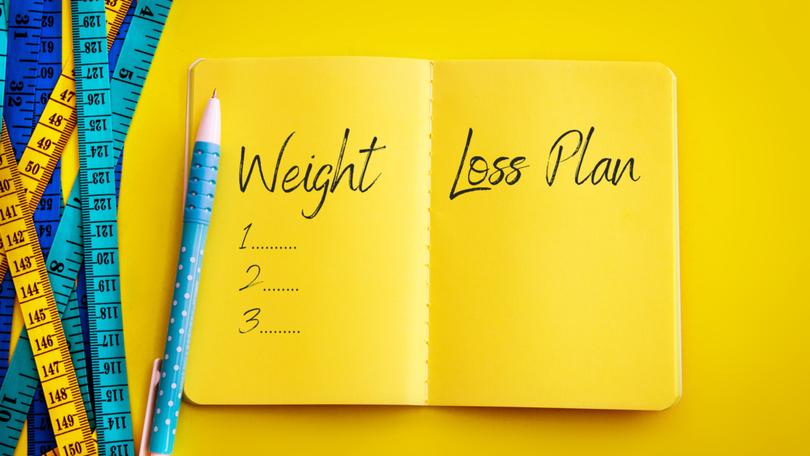Mr Motivator: Why is it ‘fat phobic’ to tell someone they’re fat when it’s for their own good?
When I started my career as a fitness instructor in the UK in 1983, it was perfectly okay to prod someone in the belly and tell them to lose a bit of weight. You’d never dare do that today.

Where I grew up in Jamaica, if you see someone who’s tall, you call them ‘Lanky’.
If they’ve got one tooth, you call them ‘Gummington’. And if they’re fat, you call them ‘Fluffy’. And no one takes offence.
If you accept who you are and you love yourself, why would you? In Britain today, it’s a whole other story.
Sign up to The Nightly's newsletters.
Get the first look at the digital newspaper, curated daily stories and breaking headlines delivered to your inbox.
By continuing you agree to our Terms and Privacy Policy.We have to be so careful about what we say so as not to cause offence. But when it comes to weight, what is our silence doing to the nation’s health?
There’s an obesity and diabetes crisis in Britain and – even if it ruffles a few feathers – someone has to call it out.
I once trained a man who weighed 24 stone.
He didn’t get into shape by burying his head in the sand and believing everything was okay. We all need to take responsibility for our health and well-being, otherwise we become a liability to our National Health Service.
And exercise is a great way of combating both obesity and diabetes. When I started my career as a fitness instructor in the UK in 1983, it was perfectly okay to prod someone in the belly and tell them to lose a bit of weight.
You’d never dare do that today. Not only have waistlines ballooned over the past 30 years but our attitudes towards obesity have changed, too.
Sixty-three per cent of adults in the UK are overweight. But call someone fat or suggest they try to slim down – and suddenly you’re accused of ‘body-shaming’ and ‘fat phobia’.
I made this point on radio 4’s Loose Ends podcast last week. But when I woke up the morning after it was broadcast, the deluge of calls and text messages I received left me in no doubt that I’d touched a chord.
But had what I said been remotely controversial? Obesity costs the NHS about £6billion a year and, by 2050, it will be nearer to £10billion.

And the incidence of diabetes is approaching epidemic proportions, too: there are just under four million people living with type 2 diabetes in Britain, with a further 850,000 living with it undiagnosed.
So why can’t we tell people when they’re getting a little tubby? And it’s not just about food. Britain has given up on exercise.
Four London hospitals are currently referring pre-op cancer patients to my classes. Why? Because being fit and healthy helps you bounce back from surgery far more quickly and makes it less likely that you’ll be struck down by another serious condition.
My mantra has always been: movement is medicine.
Back in the 1980s, fitness wasn’t about gym memberships, 5k run times or how much you could bench-press. It was about having fun. At the time, the fitness industry was riding high on the wave of films such as Footloose, Flashdance and Jane Fonda’s Workout.
Of course, some people are predisposed to being larger, but everyone can and should take responsibility for themselves.
The biggest selling record of the 80s was Olivia Newton- John’s Physical. In other words, fitness was cool. Fitness was sexy. So when I started appearing on GMTV in the 1990s doing workouts on breakfast TV, of course I decided to wear psychedelic unitards matched with bumbags and neon sweatbands.
We weren’t taking ourselves too seriously, we were having fun – and it just so happened to be good for the nation’s health. It was such a hit that celebrities were queuing up to take part.
Supermodels Cindy Crawford and Elle Macpherson swivelled their hips on live TV. Singers Sir Cliff Richard and Luther Vandross got their groove on.
Even the late Meat Loaf — a larger fellow not renowned for his agility — got in on the action. But the workouts weren’t without controversy.
I remember a singer called Kim Menzel taking part in one routine and suffering a wardrobe malfunction which – to put it politely – required my assistance to ‘pop them back in’.
You wouldn’t get a show like that now. Today, exercise is too often something people do alone, in private, on treadmills in underground gyms.
But that isn’t what fitness is about, it’s about being with people and sharing in the joy of movement. Part of the reason I have this positive mindset is what I had to get through to be where I am today.
Growing up in Jamaica, my adoptive father, a policeman, beat with me a leather strap when I misbehaved. Sometimes, he’d even beat me before I misbehaved. Even after I moved to England as a boy, fame didn’t find me immediately.
At 21 I was a single father living in a rat-infested council flat with one single bed and no mattress. I know how it feels not to be loved. So I make sure never to make anyone else feel that way, whether they are my clients or my own children.
I got the nickname ‘Mr Motivator’ because I encouraged Britain to get moving – even if that required some home truths.
Sure, I’ll help people if they need to lose weight: it’s often the kickstart they need.
My beloved wife Sandra used to be severely overweight as a result of the menopause. For 20 years, she struggled to lose weight, despite exercising with me every single morning.
I remember one evening she got dressed to go out but, by the time she got to the front door, she had to go back upstairs and change because she’d sweated through her top.
Her confidence was at rock bottom. She turned to me one day last year and said, “Derrick, I don’t remember the last time someone other than you said anything nice about my appearance.”
I saw the tears in her eyes. And I had tears in mine, too. But last year everything changed. She went alone to a wellness retreat in Thailand and changed both her perspective and her attitude.

Instead of being self-conscious, she learnt to love herself. She kept up the exercise and was equipped with this new mindset, the weight started to fall off. Within a year she had lost 66lbs.
Now her confidence is back and everyone is racing to compliment her. She stands tall once again, and I’ve got back the woman I married.
Of course, some people are predisposed to being larger, but everyone can and should take responsibility for themselves. It’s not the Government’s responsibility to keep you healthy, it’s your own.
I’m 71 now and my metabolism isn’t what it used to be. So I’ve decided to only eat half of whatever gets put on my plate. Even when it’s my favourite, apple crumble, I make sure I always leave half and someone else can enjoy it.
People tell me all the time to stop dressing like it’s the 1980s and to stop moving like I’ve got the body of a man half my age.
I tell them,”I love myself, and you should love yourself, too.” Because that’s where weight loss starts, as my wife can attest.
Movement is medicine, and it’s one this great nation needs now more than ever.
Originally published on Daily Mail
